Your login information returned multiple users. Please select the user you would like to log in as and re-type in your password.


By the time you read this, the opening salvos in the Second Music Game War will have been fired as Activision will have formally announced their contempt for and opposition to the return of Rock Band by developer Harmonix with the reveal of a new Guitar Hero game. For nearly five years, we have enjoyed a rather peaceful respite from a bloody war of attrition fought by two big-name publishers using plastic instruments, large competing libraries of songs and spin-off titles that tried to perpetuate the war onto other systems. Those dark days that we thought were behind us look to be on their way to terrorizing us once again later this year when Rock Band 4 and Guitar Hero Live arrive. Though some would argue otherwise, I find it to be no coincidence that the Doomsday Clock move ahead two minutes closer to midnight a mere week after rumors of Rock Band 4’s existence began to spread back in January. The end is nigh, dear readers! The end will come not with a whimper but with the bang of a stick hitting the side of a plastic drum set.
While the gamers of the world arm themselves by searching through their closets and storage units for their old, disregarded guitars, drum sets and crappy USB microphones, we must pray that the publishers of these blister-inducing lyrical weapons are not stuck in the past, reminiscing about the days of revenue gone by. We live in a new age of digital distribution and content creation, a time in which there are few ideas left that cannot be computed and calculated using existing horsepower. HBO now has their own dedicated streaming service for god’s sake so if they, the last true holdout of the cable-only network channels can learn to change their ways to match a new and different audience, surely Activision and Electronic Arts can, right? Right?!
This time around, we must demand a modern pitch to us, the modern consumer. We can’t have our new music games stuck in a past filled with overpriced expansion packs, under-developed side projects and plastic peripherals that need replacing with the release of every core release. It’s time for a change, lest we allow the old guard to inflict upon us a $40, 20-track Mumford and Sons expansion disc whose license expires eight months later. While I stock up on canned goods and sharpen drumsticks into arrows for a bow, please distract yourself with this list of some things that need to be addressed with the revival of this genre of games.
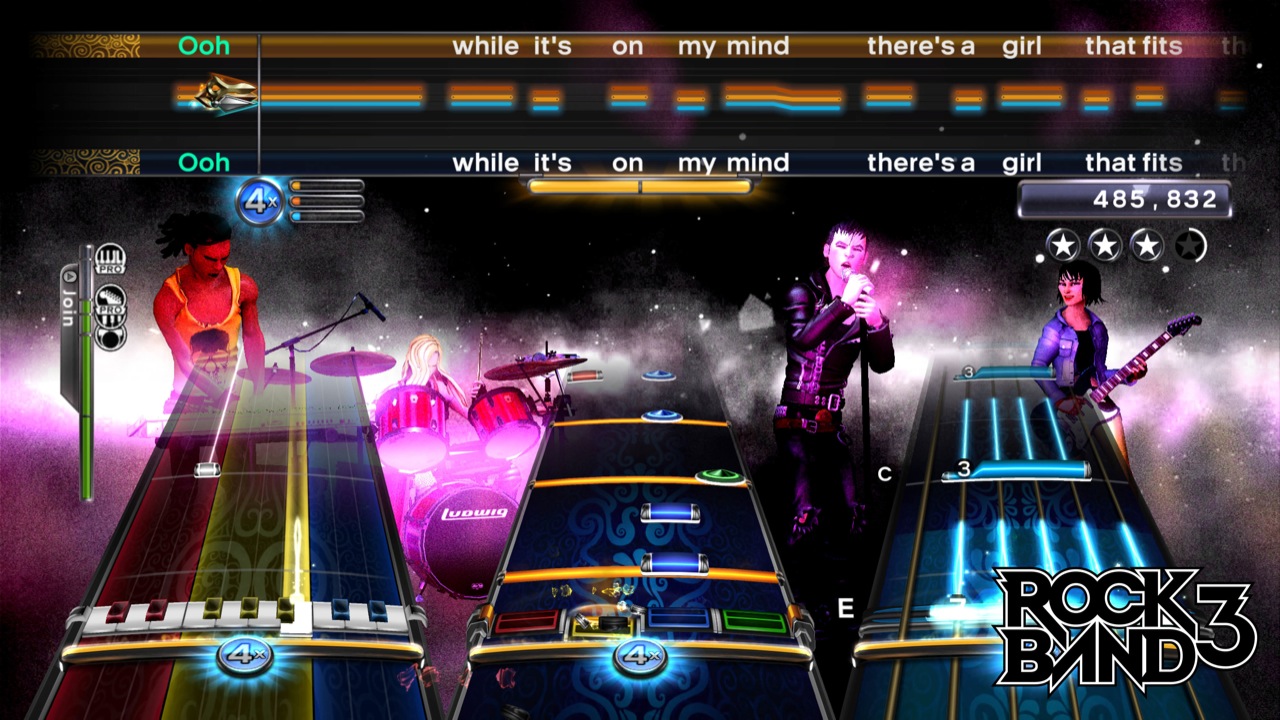
Old Weapons for a New Age
Peripherals don’t get much more iconic these days than the classic Guitar Hero controller. While the original game back in 2005 did well with its limited selection of mostly cover tracks, the Gibson SG controller was the face of the product. Those five colored frets, the whammy bar and that built in gyroscope that cause the game to earn bonus points via Star Power? You knew exactly what the controller was for as soon as you saw it. In just two years, the Gibson SG controller was accompanied by competing sets of redesigned guitars, different drum sets and microphones, allowing one to create their own little electronic cover band with incomplete compatibility for many of the controllers depending on which game you played for which system within which brand. Eventually we got a keyboard, an enhanced drum set, a keytar and even a simplified DJ turntable. To really enjoy the games and get the most diversified experience available, you’d have to invest several hundred dollars to get everything Rock Band or Guitar Hero had to offer. With advent of a new generation of music games, it’s time we demand a stop to this.
If you are like me, then you too found yourself with a problem by the end of 2009: a closet filled with three guitars, a drum set and microphone for which only really worked for two specific franchises and little to no desire to pretend to be a rock star anymore. Sure, people were posting videos of themselves beating the likes of Halo and other things but no one in their right mind was going to go through the frustration of recreating that madness-inducing experience. With almost no alternative use for these pieces of plastic, we relegated them to the back of our closets or sold them for credit toward some other game. After all, what were we to do?
With the return of Rock Band, Harmonix is promising that they are working with hardware manufacturers like Mad Catz to ensure that the instruments they released on the 360 and PS3 will work on their next gen successors. This is fantastic news for former fake rock stars that want to make a comeback tour but we must be steadfast and demand the same from Guitar Hero. No excuses for feature sets or “held-back gameplay opportunities” or because it’d be cheaper not to include backwards compatibility; if you don’t support the hardware millions of fans purchased to play your previous products, you’re doing your customers a disservice. Be wise and allow those who don’t have access or can’t afford the redesigned Hero controller to allow their friends to join in on the fun. Don’t base your profit projections off of plastic molds and USB cables: base it off the quality of the content you are making.
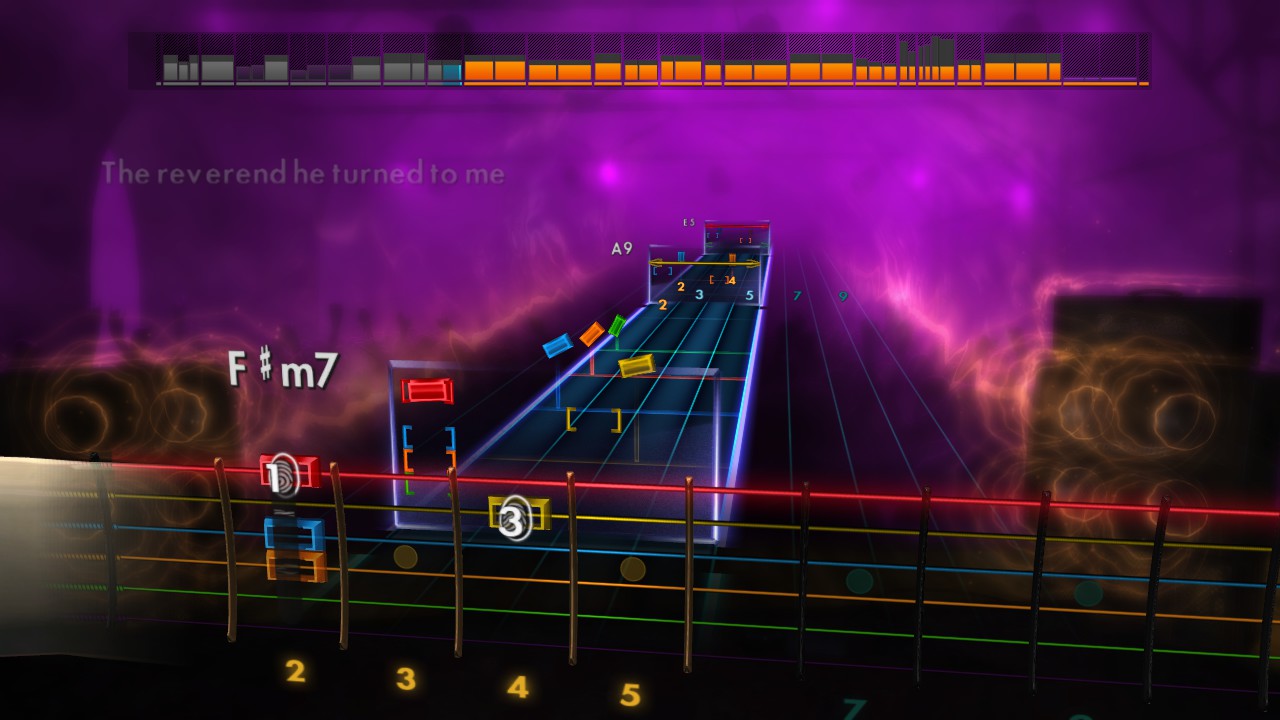
Adapt to the Next Generation
Peripheral-based games usually don’t do all that well, be it games based solely on voice recognition through lowest-bidder third party manufacturers or companies that give you a magnificent, giant mech-based controller but charge and arm and a leg to get the experience. Music games tended to be the difference though despite the regular and increasing skepticism that existed well through 2010. By the times these new games arrive, half a decade worth of industry learning and consumer trends will have taken shape which I can only hope shapes the experience of these titles for the better. But what is the best way to take advantage of the advances in technology we’ve experienced? Simple: make the best damn guitar, drum and microphone kits you can possibly design.
At the heart of it, the guitar controller of days gone by are relatively simple creations: a d-pad for menu control, a strum bar, fret buttons, an analog whammy bar, and some gyroscopes to detect the direction of the controller. Throw in some a basic wireless blutooth signal or a USB cable and that’s about all there is to it. Today however, the remaining music game on the market, Ubisoft’s Rocksmith, is a decidedly different beast. Rather than force the player to purchase a compatible controller that had no use outside of the game, Rocksmith utilizes real guitars using a quarter inch stereo adapter that plugs into the USB port of your Xbox 360 or Playstation 3. Rocksmith is, essentially, a gamer-friendly guitar tutorial that teaches you how to play a real instrument rather than only allowing you to pretend to do so. It’s a tremendous idea and though I don’t think that it should be the core of the next generation versions of Rock Band and Guitar Hero but it certainly should be a part of the experience for those willing to try.
To that end, we must demand from the developers that we see this same functionality return and be expanded. Players should be able to plug in their existing guitars (if they own one) just like in Rock Band 3 and immediately utilize it within the game whether via a guitar training tutorial or just playing through any song in the catalog. To go along with that, these new games need to include a deep yet easy-to-learn tutorial system that will teach you to play the instruments you wish you would have learned years ago. Rock Band 3 utilized a limited version of this idea with only a handful of songs to learn: this needs to be expanded to encompass every song available. Many music-makers have lamented the Guitar Hero and Rock Band experiences for over-simplifying the experience. We should have the opportunity to learn how to actually play the songs we’ve been rocking out to for years and this is an excellent opportunity.
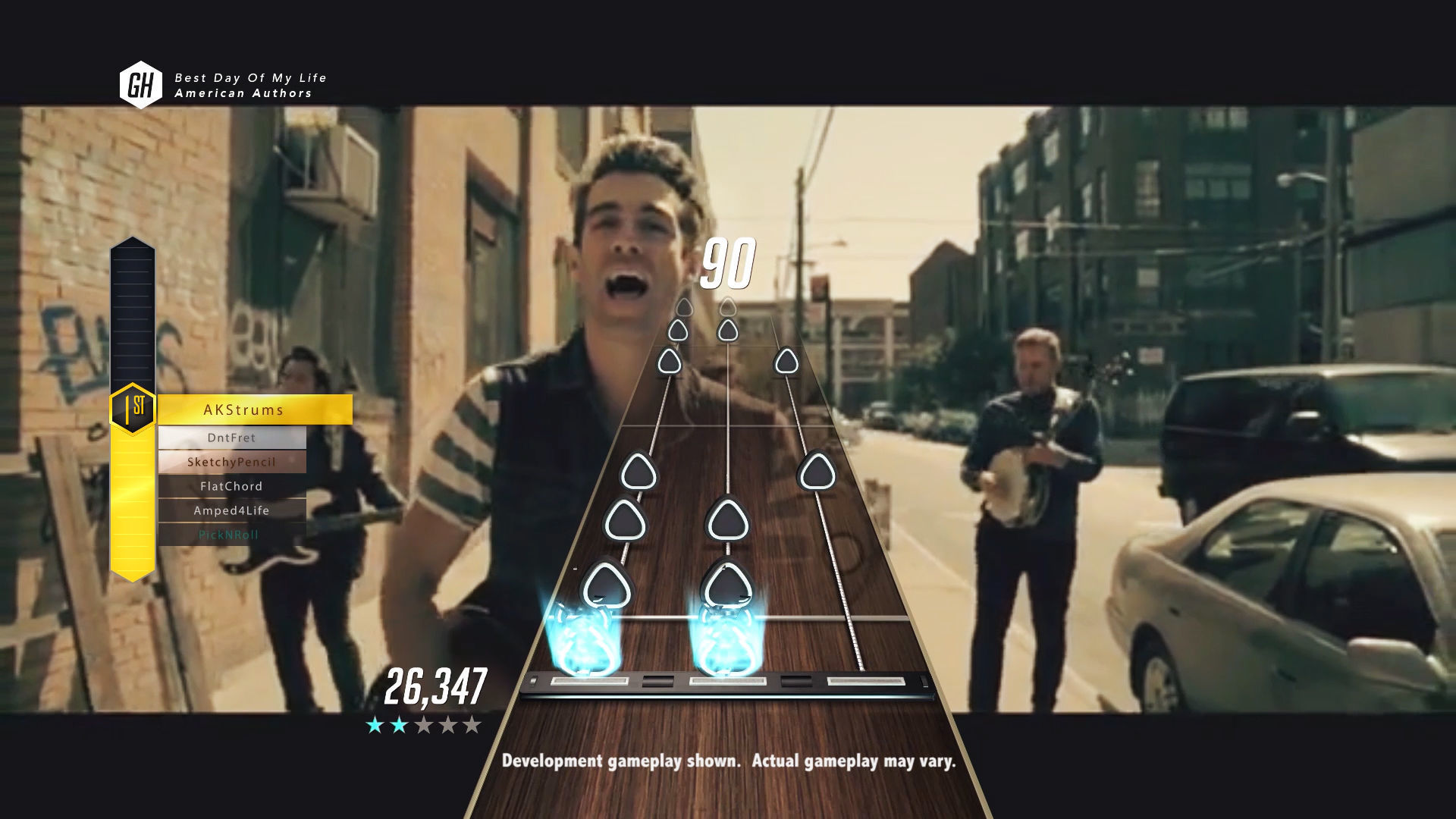
Redefine the Way Your Catalogs Work
Though Activision would try to convince you of a false truth, the clear winner of the first great Music Game War did not bear the word ‘hero’ in its name. Rock Band dominated last generation thanks to not the quality of the instruments, the gameplay experience or the strong character customization. No, it was because of what was at the heart of the game: its design around the Rock Band Network. While Activision continued to support their downloadable content plans into the latter half of 2010, Harmonix (technically with the support of Microsoft) surpassed their competitor’s library of hundreds of tracks with over four thousand available for download at any given time. The variety of tracks is rather great and while we do miss out on some big-name artists like Aerosmith and Muse, what you get is rather remarkable.
The most promising feature of Rock Band 4 will easily be the returning lineup of the tracks released for the previous games and I’m excited to see what artists could join the ranks. However, as much as I applaud Harmonix’s efforts with an iTunes-esque store with rather fair pricing, I must ask that the new game brings with it a reinvented experience. With the rise of streaming services such as Pandora, Slacker Radio and Last.fm, it isn’t unreasonable to imagine a partnership with one of these services that allows you to play along with a set list that appears while using it. Hear a ZZ Top track come on that you wanna play? Press a button and boom, you could be streaming it off the game’s network immediately. Not sure if the music you’re listening to is available as a playable song? An audio recognition app such as Shazam could quickly identify whether it is in the game or not. If it is, allow someone to open the Rock Band or Guitar Hero apps on their smart phones and immediately purchase the song to play. The possibilities are rather exciting and I hope at least Harmonix takes advantage of what could be done.
Regardless of the place and time you choose to play Guitar Hero Live or Rock Band 4, one thing should absolutely be included: cross-platform libraries. If I buy a song on an Xbox, I should be able to log into my Guitar Hero or Rock Band Network account and download it for use on my Playstation. No more system exclusivity when it comes to these games: Harmonix and FreeStyleGames need to push their publishers to not make short-sighted cash grabs when offered by the primary hardware manufacturers. After all, these games are built around playing with friends in your living room and if we can’t get around the worry of controller compatibility, we should at least not have to be concerned with who owns what songs on which platform.
Create an Indie Band Creation Platform
When the Rock Band Network launched alongside Rock Band 2, Harmonix included the ability for aspiring musicians to create their own custom tracks and publish them within the RBN. This functionality was improved tremendously in the sequel with the ability to use the pro adapters to use real guitars, keyboards and the like to master their own music, create the rhythm tracks used in the game and release it for everyone to play. It’s a remarkable and interesting tool that is very cost effective for those wanting to not only get their works out in a way that millions of people can experience them in a fun way but also quite cost effective.
With the XNA Developers Club discontinued however, I feel it must fall on the developers themselves to integrate these tools directly into the games themselves and while Guitar Hero seems bent on not offering people this opportunity, Harmonix has already done a lot of the leg work here and could reasonably make this into a reality in time for a Fall 2015 launch. The development and implementation of professional-level tools within Rock Band 4, without ever having to get on a PC to mess with settings, would be an amazing thing to offer. Imagine allowing aspiring musicians the ability to write, practice and adjust their performances all with a few simple button presses without the need for major equipment upgrades like giant mixers and amplifiers. While in practice mode, you could adjust each audio channel on the fly, allowing you to change the pitch, tone, levels and more of what is being played in real time, all on your television. Fell like your BPM is off? A speed setting could be applied to each participating instrument that increases or decreases the pace in which notes on the screen appear.
Rock Band is full of potential in this regard and if Harmonix can pull it off, Rock Band 4 could go from just another rhythm game and turn itself into a cheap, entry-level studio system.
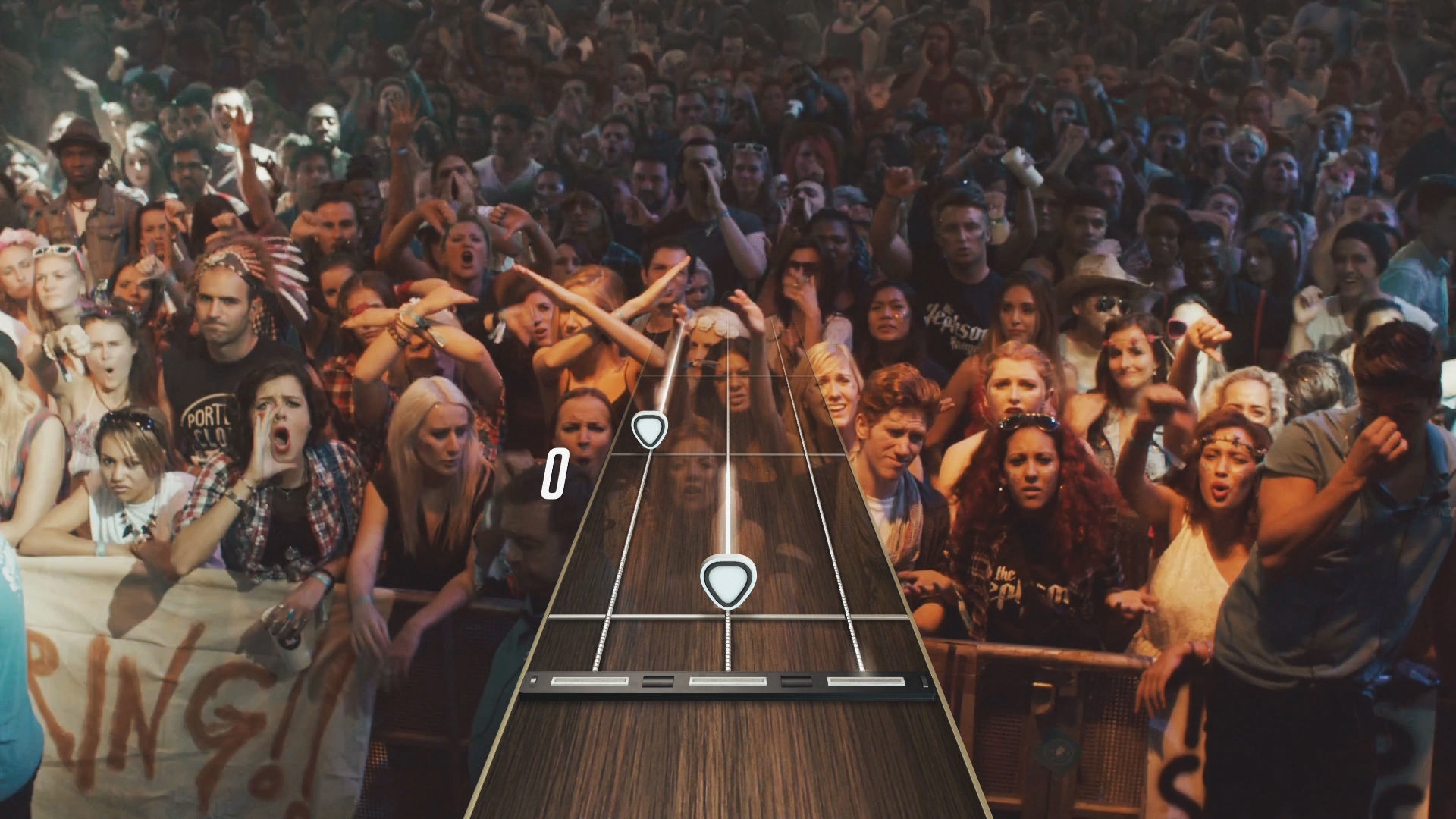
Bring it to PC
For a decade now, Guitar Hero and Rock Band have battled it out in the living room and on the go, fighting in parallel to the console war that was the Xbox 360, Playstation 3 and Wii. The conflict eventually spread to portable systems with DS and PSP versions of the franchises as well as phones and tablets and even an arcade version. Despite the massive amount of versions, ports and expansions released over the years, none of these ever appeared on the one platform that could benefit the most from a new Rock Band or Guitar Hero: the PC gaming community. This needs to change.
For years, PC players wanting to unleash their inner rock star have been forced to either emulate the console versions, use knock-off programs of varying functionality or simply live without. Though I may not be too big of a PC gamer, I can tell you that both of these franchises would do very well on the PC. I can easily picture players retooling and modifying the experience to their own preferences, allowing them to import and customize the music they truly want to play. Modders would no doubt be able to create their own venues, character models and backgrounds for which they could make the experience of being a fake musician. Imagine a fake guitarist being able to play their favorite songs on stage at a recreation of their favorite music venues without having to ever wait on the developers to include it as downloadable content! One cannot even begin to conceive of the other types of mods that could happen. What if Rock Band 4 supporting the Occulus Rift and allowing players to look around in first person just like the FMV sequences in Guitar Hero Live but without it being an entirely canned experience? Can you imagine fully playable Doom mod in which you’re playing tracks from the game’s soundtrack as you actually play through the classic shooter?! By jove, it could happen but only if these publishers are willing to take the smart bet.
EA and Activision: don’t force gamers to have to stay in the living room to get the Rock Band or Guitar Hero experiences. Let these series finally come to the platform that you’ve been neglecting for years.
Guitar Hero and Rock Band have stood the test of time as great mediums by which the player can experience the life of a rock star without having do all that much. However, times have changed and technology has grown immensely more powerful. It’s time that they grew along with it. Will any of these things happen though? Well, it seems that Guitar Hero Live seems stuck in the past but I think, with a little bit of effort, they can come around to some of these ideas. As for Rock Band, I find myself with far more faith as to the possibilities of the next entry. Whatever happens, we’ll find out in just a few short months.
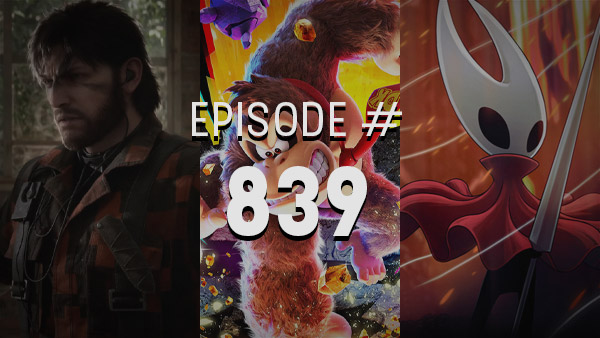
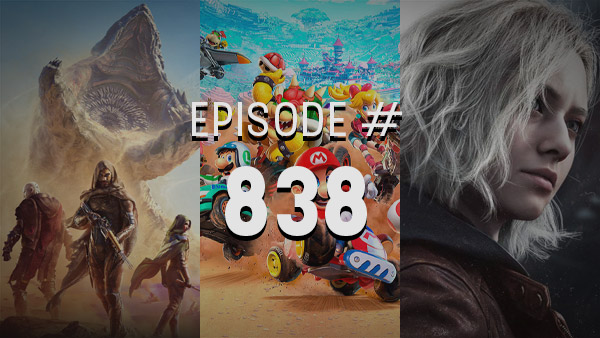
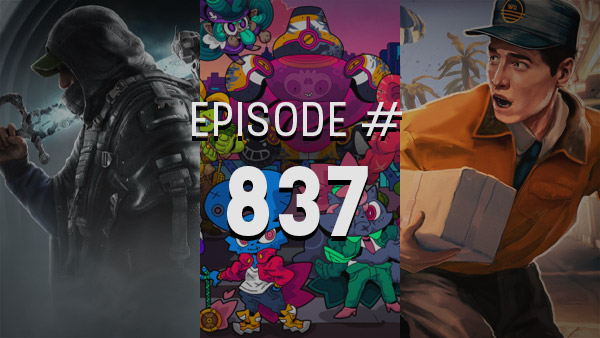
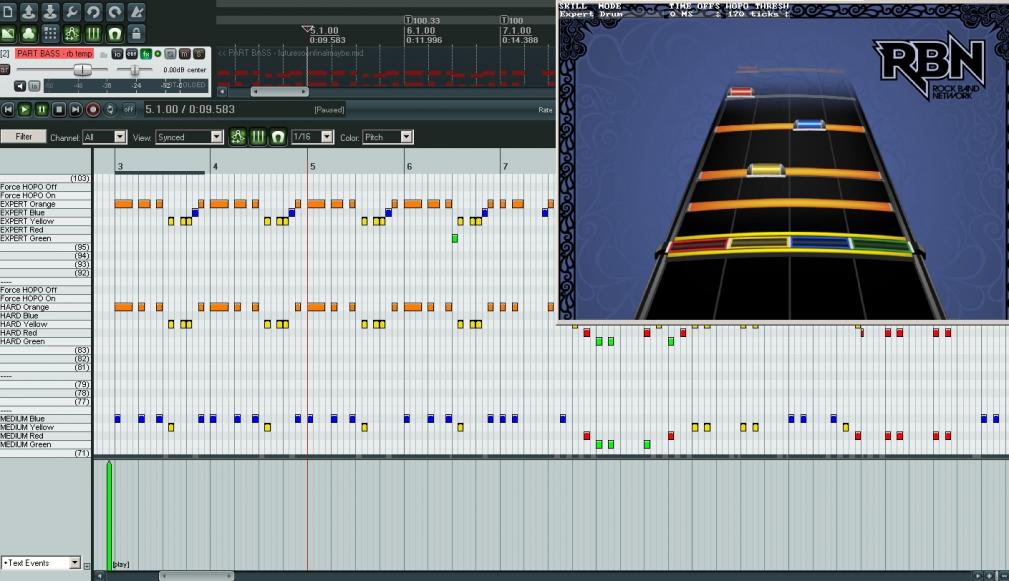
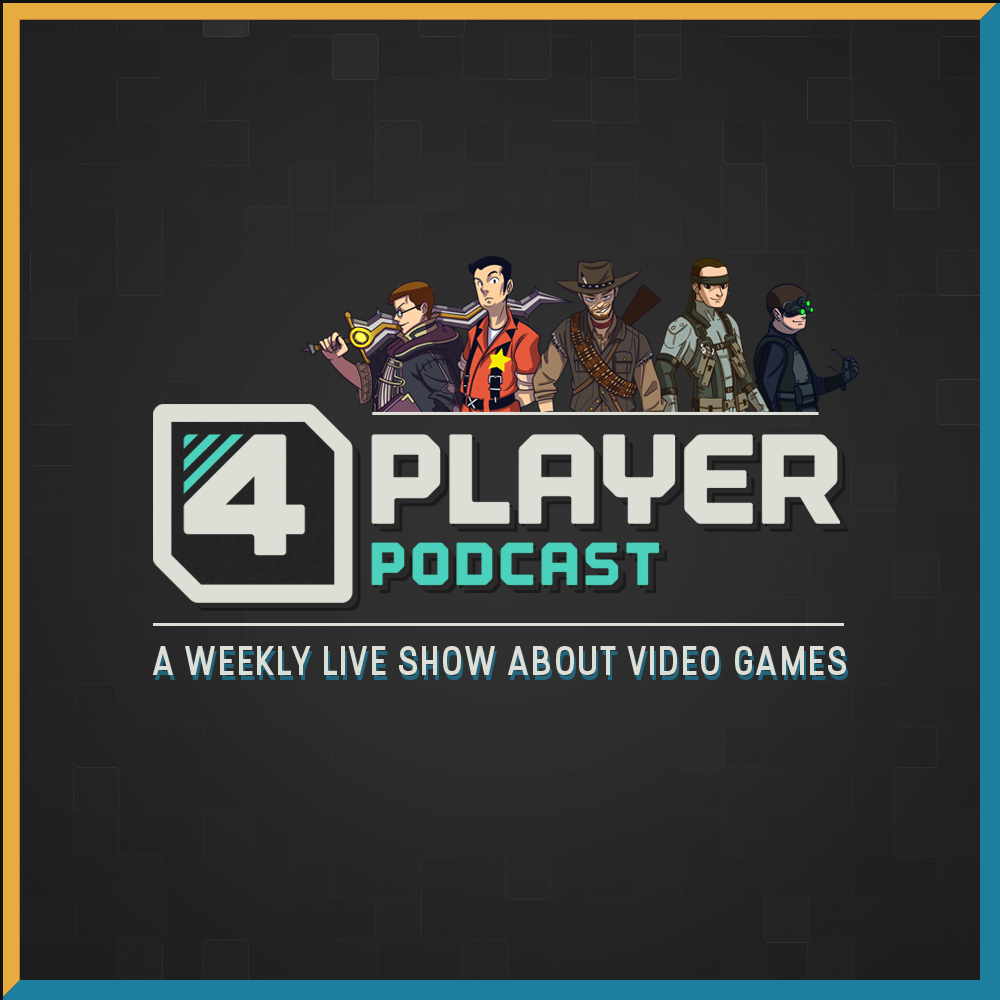
Comments
10 years, 2 months ago
I have to admit, being able to import music to play from your PC Audiosurf-style would be a pretty sweet addition. I don't know if either company would be up for it though since importing music would = no room for DLC song-packs or expansions. I guess there's an argument to be made that it would still be more revenue than either company is bringing in from the PC fans at present.
At least Harmonix will be keeping to the peripherals from last generation.